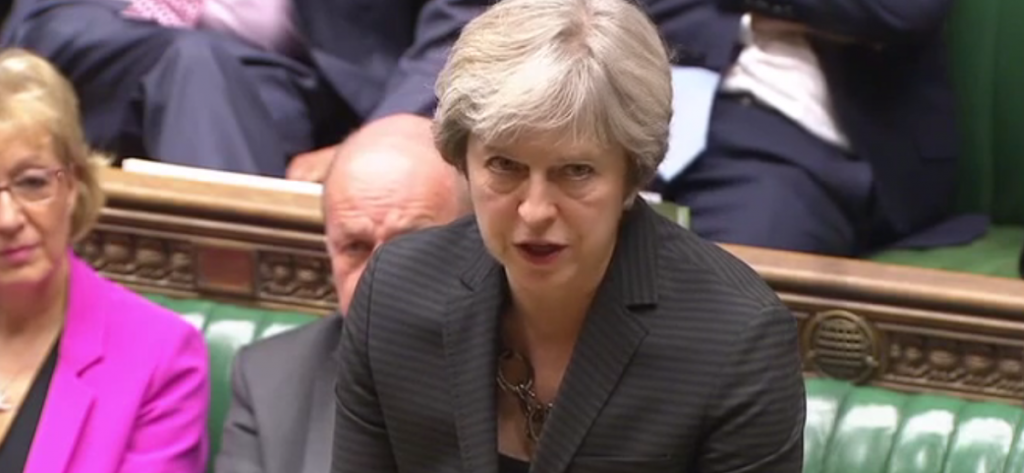By Martha Spurrier
The government's data protection bill was meant to give people control over their information. Instead it will strip millions of their rights.
The supposed intention of the legislation is to "empower people to take control of their data". But schedule 2.4 removes data protection rights from individuals when their personal information is processed for "the maintenance of effective immigration control" or "the investigation or detection of activities that would interfere with effective immigration control".
In technical terms, that means any government agency processing data for immigration purposes will be free of those pesky data protection obligations we've developed through successive Acts of parliament – and signed up to through the EU's General Data Protection Regulation (GDPR).


In practice the exemption will create a two-tier data rights regime. When an agency relies on the exemption, individuals will lose their right to know what information is held about them, who is processing it and why.
They will not be able to correct or erase information held about them – which doesn't bode well considering how much of the data held on us is out of date or just plain wrong.
The Home Office is a notoriously poor data controller. There are countless examples. Just last month Dr Mohsen Danaie was told he had "no lawful basis to be in the UK". He would be forcibly removed if he didn't leave voluntarily. Dr Danaie is a research scientist – and has a work visa valid until 2019.

A 2016 investigation by the Chief Inspector of Borders and Immigration found that of a sample of 169 refusals to open bank accounts, ten per cent were dismissed in error.
People's lives could be ruined in an instant. And it won't just affect migrants.
The lack of a definition of "effective immigration control" or activities that would interfere with it makes it practically impossible to draw up a list of all those who could be caught up.
Would people working to help migrants – maybe those running food banks or night shelters – be seen as frustrating the Home Office strategy of incentivising people to 'go home' through enforced destitution?
The exemption could also be used to facilitate the sharing of personal data between public services and the Home Office if it's decided checking everyone's entitlement to access healthcare, education or social housing is necessary for effective immigration control.
This would effectively create a digital ID card for each and every one of us without us knowing what data is being shared, or being able to have it corrected or deleted.
The idea that personal data collected for one purpose can't be used for another without the individual's informed consent is the cardinal principle of data protection. This exemption makes a mockery of it and sets a damaging precedent for the privacy rights of all of us.
Hostile environment
Exemptions for crime – including immigration offences – are covered elsewhere in the bill. So why add this all-encompassing immigration exemption?
The Home Office has been publicly committed to creating a "hostile environment" for undocumented migrants since 2012 – turning public servants and even private citizens into border guards.
Charging the masses with reporting on others has affected the very fabric of our society, creating the potential for discrimination against all migrants and ethnic minority communities, and spreading suspicion and division. The widespread and routine sharing of personal data collected by frontline agencies with the Home Office is the cornerstone of the hostile environment.
In the last year alone, secret deals to aid immigration enforcement have been exposed between the Home Office and the Department of Health and NHS Digital, Department for Education, the Greater London Authority and more. They've all been set up without public consultation or parliamentary scrutiny, and have only been exposed through FoI requests.
If the immigration exemption stays in the Data Protection Bill, agencies including the Home Office will have the virtually limitless ability to process data without transparency or oversight – with no need for suspicion of criminal activity as long as they cite "immigration control".
In other words, it would give the green light for these backroom data-sharing deals to operate in secret even when no crime is suspected – extending a regime that is already causing migrants to avoid seeking healthcare and keep their children away from school.
Strike it down
When the Data Protection Act 1983 was working its way through parliament, it contained a nearly identical clause which – widely and rightly condemned – never became law.
This new incarnation would turn the clock back on more than 30 years of improved community relations and human rights protections. The Lords must stand against this and scrap the immigration exemption.
Martha Spurrier is director of Liberty.
The opinions in politics.co.uk's Comment and Analysis section are those of the author and are no reflection of the views of the website or its owners.












